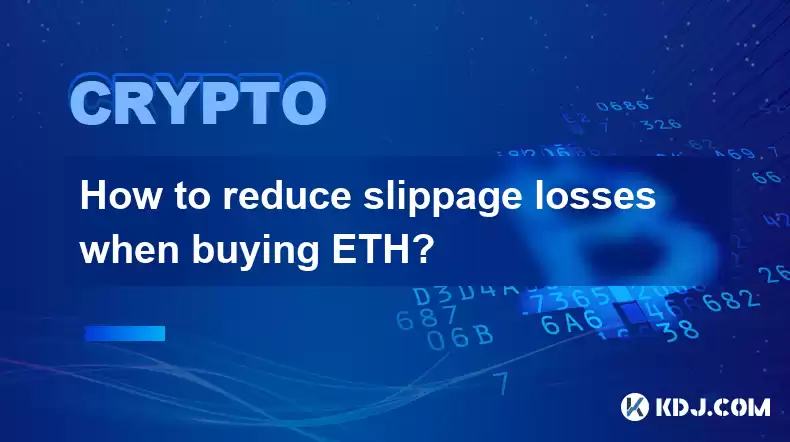-
 Bitcoin
Bitcoin $116400
-0.36% -
 Ethereum
Ethereum $4033
3.40% -
 XRP
XRP $3.302
-1.26% -
 Tether USDt
Tether USDt $1.000
-0.02% -
 BNB
BNB $796.1
1.67% -
 Solana
Solana $177.8
1.89% -
 USDC
USDC $0.9999
0.00% -
 Dogecoin
Dogecoin $0.2314
4.09% -
 TRON
TRON $0.3381
0.14% -
 Cardano
Cardano $0.7989
1.22% -
 Stellar
Stellar $0.4496
-1.84% -
 Chainlink
Chainlink $20.42
9.42% -
 Hyperliquid
Hyperliquid $41.17
0.88% -
 Sui
Sui $3.914
3.77% -
 Bitcoin Cash
Bitcoin Cash $584.7
1.52% -
 Hedera
Hedera $0.2632
-0.54% -
 Avalanche
Avalanche $24.09
3.40% -
 Ethena USDe
Ethena USDe $1.001
-0.02% -
 Litecoin
Litecoin $123.2
1.33% -
 Toncoin
Toncoin $3.318
-0.04% -
 UNUS SED LEO
UNUS SED LEO $8.984
-0.05% -
 Shiba Inu
Shiba Inu $0.00001323
2.85% -
 Uniswap
Uniswap $10.90
4.41% -
 Polkadot
Polkadot $3.999
3.34% -
 Dai
Dai $1.000
0.01% -
 Cronos
Cronos $0.1630
9.64% -
 Bitget Token
Bitget Token $4.484
0.82% -
 Monero
Monero $272.4
2.44% -
 Pepe
Pepe $0.00001173
6.03% -
 Aave
Aave $290.8
2.88%
How to reduce slippage losses when buying ETH?
To minimize slippage when buying ETH, use limit orders, trade on reputable exchanges with high liquidity, and avoid periods of high volatility.
Mar 31, 2025 at 04:07 am

Understanding Slippage in ETH Trading
Slippage refers to the difference between the expected price of an asset (like ETH) and the actual price at which the trade executes. This discrepancy often arises due to market volatility, especially during periods of high trading volume or low liquidity. For ETH buyers, slippage means paying more than the anticipated price, resulting in a loss. Minimizing slippage is crucial for maximizing profits and avoiding unexpected expenses. Several strategies can help mitigate this risk.
Strategies to Minimize ETH Slippage
Several methods can be employed to reduce the likelihood of experiencing significant slippage when purchasing ETH. These techniques focus on improving the efficiency and timing of your trades.
Use Limit Orders: Instead of market orders, which execute immediately at the best available price, limit orders allow you to specify a maximum price you're willing to pay. This ensures you won't overpay if the price suddenly jumps. However, there's a risk your order may not fill if the price doesn't reach your limit.
Choose Reputable Exchanges: Large, reputable cryptocurrency exchanges generally offer better liquidity than smaller ones. Higher liquidity means more buyers and sellers, reducing the chances of significant price fluctuations during your trade execution. This helps minimize slippage.
Trade During Periods of Low Volatility: Market volatility directly impacts slippage. Avoid buying ETH during periods of high news events or significant price movements. Trading during quieter times, when the market is less volatile, will typically lead to less slippage.
Break Down Large Orders: Attempting to buy a large quantity of ETH in a single transaction can significantly impact the market price, increasing slippage. Breaking down your purchase into smaller, more manageable orders helps reduce this effect. This allows for gradual accumulation without causing sudden price spikes.
Utilize Trading Bots (with Caution): Sophisticated trading bots can analyze market conditions and execute trades at optimal times, potentially minimizing slippage. However, it's crucial to choose a reputable bot and understand the associated risks. Improperly configured bots can lead to unexpected losses.
Consider Order Types: Beyond limit orders, explore other order types offered by your exchange. Stop-limit orders, for instance, allow you to set a limit price for execution only after a certain price threshold is reached. This can be particularly useful in volatile markets.
Understanding Order Book Depth and Liquidity
The order book, a crucial component of any exchange, displays the current buy and sell orders for an asset. Deep order books, with numerous buy and sell orders at various price points, indicate high liquidity. This is beneficial because it minimizes the impact of your trade on the overall price, thereby reducing slippage. Conversely, shallow order books with few orders suggest low liquidity and a higher risk of slippage.
The Impact of Network Congestion on ETH Slippage
Network congestion on the Ethereum blockchain itself can indirectly contribute to slippage. High gas fees and slow transaction confirmations can delay your trade execution, potentially leading to price changes and increased slippage. Monitoring network congestion levels and adjusting your trading strategy accordingly is important. Consider trading during periods of lower network activity.
Minimizing Slippage with Different Exchange Features
Many exchanges offer features designed to help minimize slippage. These can include:
Advanced Order Types: Some exchanges provide advanced order types beyond limit and market orders, offering more control over trade execution and reducing slippage.
Algorithmic Trading Tools: Algorithmic trading tools can help automate the process of breaking down large orders and executing them strategically to minimize slippage.
Real-Time Market Data: Access to real-time market data helps traders make informed decisions, allowing them to identify periods of lower volatility and reduce the risk of slippage.
Slippage Protection: Some exchanges offer slippage protection features that automatically cancel orders if the price deviates too much from the expected price. This provides an additional layer of safety.
Choosing the Right Exchange for ETH Trading
The exchange you choose significantly impacts your trading experience and the likelihood of slippage. Consider factors like liquidity, fees, order types, and security when selecting an exchange. Research and compare different exchanges before committing to one. Larger, more established exchanges generally offer better liquidity and minimize the risk of slippage.
Frequently Asked Questions
Q: What is the best way to avoid slippage when buying ETH?
A: There's no single "best" way, but combining strategies like using limit orders, trading during low volatility, breaking down large orders, and choosing a reputable exchange with high liquidity significantly reduces the risk.
Q: Can slippage be completely avoided?
A: No, slippage is inherent to market trading. However, employing the strategies discussed can significantly minimize its impact.
Q: How does trading volume affect slippage?
A: High trading volume can increase volatility and liquidity, potentially increasing or decreasing slippage depending on the market conditions. Low volume can also lead to increased slippage due to a lack of buyers and sellers.
Q: What are the consequences of high slippage?
A: High slippage means paying more for ETH than anticipated, directly impacting your profitability. In extreme cases, it can lead to significant losses.
Q: Is slippage more common with certain cryptocurrencies?
A: Slippage can occur with any cryptocurrency, but it's more pronounced in assets with lower liquidity or higher volatility. ETH, while relatively liquid, can still experience slippage, especially during periods of high market activity.
Disclaimer:info@kdj.com
The information provided is not trading advice. kdj.com does not assume any responsibility for any investments made based on the information provided in this article. Cryptocurrencies are highly volatile and it is highly recommended that you invest with caution after thorough research!
If you believe that the content used on this website infringes your copyright, please contact us immediately (info@kdj.com) and we will delete it promptly.
- Maxi Doge Presale: The Meme Coin That's Pumping Iron and Prices!
- 2025-08-09 19:10:11
- Rare Coin Warning: Don't Get Fooled by That 1p Coin!
- 2025-08-09 18:50:12
- Cardano, Unilabs, and Tron Price: Decoding the Latest Crypto Buzz
- 2025-08-09 18:30:12
- Aerodrome Finance: Price Targets and the Bullish Channel - What's Next?
- 2025-08-09 18:50:12
- BlackRock and the Crypto ETF Landscape: No XRP (Yet!), But What's Next?
- 2025-08-09 19:10:11
- Rare Coin Frenzy: eBay Sees 2p Coin Listed for Over £2K!
- 2025-08-09 18:55:11
Related knowledge

Where can I buy UMA (UMA)?
Aug 07,2025 at 06:42pm
Understanding UMA and Its Role in Decentralized FinanceUMA (Universal Market Access) is an Ethereum-based decentralized finance (DeFi) protocol design...

How to buy Storj (STORJ) tokens?
Aug 09,2025 at 07:28am
Understanding Storj (STORJ) and Its Role in Decentralized StorageStorj is a decentralized cloud storage platform that leverages blockchain technology ...

What is the best app to buy Nano (NANO)?
Aug 09,2025 at 03:35am
Understanding Nano (NANO) and Its Unique FeaturesNano is a feeless, instant cryptocurrency designed for fast peer-to-peer transactions. Unlike many ot...

Where can I purchase Siacoin (SC)?
Aug 08,2025 at 11:14am
Understanding Siacoin (SC) and Its Role in the Sia NetworkSiacoin (SC) is the native cryptocurrency of the Sia decentralized cloud storage platform, a...

How to sell my Ontology (ONT) tokens?
Aug 09,2025 at 06:08pm
Understanding Ontology (ONT) and Its Trading EcosystemBefore selling your Ontology (ONT) tokens, it's essential to understand the nature of the crypto...

Where can I buy OMG Network (OMG)?
Aug 08,2025 at 12:57pm
Understanding OMG Network (OMG) and Its PurposeThe OMG Network, originally known as OmiseGO, is a layer-2 scaling solution built on the Ethereum block...

Where can I buy UMA (UMA)?
Aug 07,2025 at 06:42pm
Understanding UMA and Its Role in Decentralized FinanceUMA (Universal Market Access) is an Ethereum-based decentralized finance (DeFi) protocol design...

How to buy Storj (STORJ) tokens?
Aug 09,2025 at 07:28am
Understanding Storj (STORJ) and Its Role in Decentralized StorageStorj is a decentralized cloud storage platform that leverages blockchain technology ...

What is the best app to buy Nano (NANO)?
Aug 09,2025 at 03:35am
Understanding Nano (NANO) and Its Unique FeaturesNano is a feeless, instant cryptocurrency designed for fast peer-to-peer transactions. Unlike many ot...

Where can I purchase Siacoin (SC)?
Aug 08,2025 at 11:14am
Understanding Siacoin (SC) and Its Role in the Sia NetworkSiacoin (SC) is the native cryptocurrency of the Sia decentralized cloud storage platform, a...

How to sell my Ontology (ONT) tokens?
Aug 09,2025 at 06:08pm
Understanding Ontology (ONT) and Its Trading EcosystemBefore selling your Ontology (ONT) tokens, it's essential to understand the nature of the crypto...

Where can I buy OMG Network (OMG)?
Aug 08,2025 at 12:57pm
Understanding OMG Network (OMG) and Its PurposeThe OMG Network, originally known as OmiseGO, is a layer-2 scaling solution built on the Ethereum block...
See all articles

























































































